World Trade Center of Greater Philadelphia |
Steven Scott Bradley is the 2023 Diversity in Business Awards Lifetime Achievement recipient. |
It is for his work and advocacy that the Philadelphia Business Journal is proud to honor Bradley as the 2023 Diversity in Business Awards Lifetime Achievement Award recipient. |
609-680-7670
gdinuzzo@wtcphila.org
2023 Company of the Year Announced!
Philadelphia, PA…July 7, 2023
We are so excited to announce that our 2023 Company of the Year is our long-time member company – Van Horn, Metz & Co.
Congratulations to Barry Fisher, President, and WTCGP Advisory Council Member, and to his entire team!
As distributors for over 25 renowned companies including Chemours, Evonik, Cargill, Lubrizol, and others, VHM maintains its position to provide the most advanced products – safely.
Read More…
Media Contact: Graziella DiNuzzo
609-680-7670
gdinuzzo@wtcphila.org
The World Trade Center of Greater Philadelphia (WTCGP)
First Export Training Program Cohort Completed
Eighteen Delaware Valley Area Small Businesses Participated
Philadelphia, PA…June 2, 2023….On June 1, 2023,
The World Trade Center of Greater Philadelphia completed its first Export Training Class for Small Businesses as part of its “Selling to the World” initiative an exciting new program designed to restore and expand the growth of small and medium-sized enterprises (SMEs), both established exporters and new-to-exporting companies. This program is also designed to increase global access and opportunities for minority and women-owned businesses (MWBEs) that includes global supplier diversity training to enable these companies to export into the global supply chains of multinational corporations abroad.
The Export Training Program was led by Ron Drozd, WTCGP Director, Export Programs and Services with the assistance of the WTCGP team and Beth Pomper, Director of International Business for Delaware. Company executives were taught how to develop an export strategy, find qualified buyers, navigate logistics and shipping, and learn about export finance, International Business Culture and Etiquette, and more. All classes included presentations by experts in the field.
“The Selling to the World program is providing the specialized export training to enable Small and Medium-Sized Enterprises, including many Minority and Women-owned businesses, to gain the exporting knowledge and technical expertise to market, sell and ship to international buyers. As our participants become more adept at exporting and increase global sales, the result will be a boost in their production of local goods and services ultimately leading to job growth in these SME companies,” says Ron Drozd.
Each participating company receives a one year WTCGP membership and will be given a dedicated international trade specialist for continued one-on-one counseling. Companies registered in Pennsylvania will also receive access to the PA Office of International Business Development (OIBD) services through the WTCGP (a Regional Export Network partner).
“These classes have been extremely informative and very helpful. Sometimes you just don’t know what you don’t know. You are doing an excellent job managing these sessions and the speakers are clearly experts in their respective fields. This is a very good program and I would highly encourage any business interested in exporting to look into it,“ said Eric O’Connor, Vice President of Sales, O’Connor Belting/Derco USA
At a cocktail reception to celebrate the completion of the last training class, each company received a certificate of completion presented by Ron Drozd and Tony Simonetta, Interim President, WTCGP.
The Companies who have completed the inaugural WTCGP Export Training Program include:
|
|
The development of the Export Training program was supported by the WTCGP Global Diversity Advisory Council (GDAC), comprised of distinguished leaders in the Greater Philadelphia business community and in supplier diversity who are dedicated to advancing economic growth opportunities for minority and women-owned business enterprises. (MWBEs).
“The GDAC serves as a bridge to the marketplace and convener of partners in an ever-shrinking world to elevate minority businesses who have traditionally been shut out of the market,” says Brian Oglesby, GDAC Co-Chair, Interim President and CEO, Eastern Minority Supplier Development Council.
“This program, as presented by the World Trade Center of Greater Philadelphia, will allow women owned businesses the opportunity to expand their business to the world’s stage. WBEC-East is excited to be a part of ensuring the ability of women-owned businesses become more resilient and competent in the face of any future global challenges,” says Elizabeth Walsh, GDAC Co-Chair and President, Women’s Business Enterprise Center – East.
“Selling to the World” export training is made possible through the support of the U.S. Economic Development Administration, the PA Office of International Business Development, the members of the GDAC and the many corporate sponsors of the WTCGP that support this program.
About the World Trade Center of Greater Philadelphia
The World Trade Center of Greater Philadelphia (WTCGP) is a 501(c)(3) non-profit international trade services and membership organization, providing companies in Southeastern PA and Southern NJ with individual trade counseling, educational programs, market research, trade mission support, business networking events, and powerful connections to customers and partners worldwide. The WTCGP is also a member of the World Trade Centers Association (WTCA) which consists of 320 members in 92 countries.
Since 2002, WTCGP has helped small and medium-sized companies generate export sales by a combined $2.3B - Increasing jobs in the region by over 29,000 and furthering its mission “to bring growth and prosperity to businesses, communities, and neighborhoods in Greater Philadelphia and worldwide.” wtcphila.org.
The World Trade Center has launched its inaugural Global Diversity Advisory Council (GDAC), comprised of distinguished leaders in the Philadelphia business community and in supplier diversity who are dedicated to advancing economic growth opportunities for minority and women-owned business enterprises. (MWBEs).
Brian Oglesby, Interim President and CEO of the Eastern Minority Supplier Development Council (EMSDC) and Elizabeth Walsh, President of the Women’s Business Enterprise Center – East (WBEC) are Co-Chairs.
GDAC Members include:
- Brian Oglesby, Co-Chair, Interim President/CEO, Eastern Minority Supplier Development Council
- Elizabeth Walsh, Co-Chair, President, Women’s Business Enterprise Center - East
- Kenneth Anderson, Vice President Civic Affairs, Chamber of Commerce for Greater Philadelphia
- Bridgett M. Battles, Director of Community Engagement and Supplier Diversity, Thomas Jefferson University
- Steven Scott Bradley, President and CEO, Bradley & Bradley Associates, Inc. (Vice Chair WTCGP and former Chair African American Chamber of Commerce)
- L. Jay Burks, PhD, Director of Supplier Diversity, Comcast Corporation
- Iola Harper, Senior Executive Vice President, The Enterprise Center
- Casey McCourt, Senior Economic Development Specialist, PECO
- Michelle Morin, Global Procurement Leader - Supplier Diversity & Sustainability, Corteva Agriscience
- Sundari Pai, Senior Manager, Global Supplier Diversity, Bristol Myers Squibb
- Beth Pomper, Director, International Business Development, State of Delaware
- Maria Prince, Global Procurement ESG Leader, DuPont
- Christina Renna, President, Chamber of Commerce Southern New Jersey
- Natily Santos, Vice President Responsible Sourcing, Aramark & Avendra Group
- Lawrence Wooten, Senior Manager, National Supplier Diversity, American Water
- Khine Zaw Arthur, PhD, President and CEO, Asian American Chamber of Commerce
- Zach Wilcha, Chief Executive Officer of the Independence Business Alliance
- Regina A. Hairston, President and CEO, African American Chamber of Commerce
GDAC Members have already held two monthly meetings (January 20 and February 21) to support the implementation of the Selling to the World initiative: Selling to the World: Growing a Vibrant, Inclusive, and Connected Economy for Greater Philadelphia. The COVID19 pandemic significantly impacted small and medium-sized enterprises (SMEs), including MWBEs. Selling to the World is a transformative public/private sector initiative to generate sustainable and inclusive economic growth and family-sustaining jobs. The initiative is designed to restore and expand the growth of SMEs with a feature program to increase the capacity to transact business globally for MWBEs.
“Engaging in the global marketplace is no longer a luxury for businesses seeking a greater level of opportunity and inclusion, it is an imperative for growth as a supplier both locally and globally. The GDAC serves as a bridge to the marketplace and convener of partners in an ever-shrinking world to elevate minority businesses who have traditionally been shut out of the market. In collaboration with our regional stakeholder, we will accelerate the movement of the needle,” says Brian Oglesby, GDAC Co-Chair, Interim President and CEO, Eastern Minority Supplier Development Council.
“The state of the world economy and the global pandemic negatively impacted women owned businesses disproportionately these past three years; but it has also provided an opportunity to rethink and reinvent business strategies. This program, as presented by the World Trade Center of Philadelphia, will allow women owned businesses the opportunity to expand their business to the world’s stage. WBEC-East is excited to be a part of ensuring the ability of women-owned businesses become more resistant and competent in the face of any future global challenges,” says Elizabeth Walsh, GDAC Co-Chair and President, Women’s Business Enterprise Center – East.
GDAC members will provide guidance on the implementation of the MWBE program and help to promote and recruit companies to participate in the first cohort and training in the “Fundamentals of Exporting,” an in-person program in a dedicated learning community.
“I am grateful to our GDAC Members who will help support our Selling to the World program for MWBEs in our region. For both non-profits and corporations committed to advancing inclusive economic opportunity, this represents an important opportunity to add value to the MWBEs they serve. This initiative aligns with WTCGP’s commitment to diversity, equity, and inclusion and our mission of bringing growth and prosperity to businesses, communities and neighborhoods in Greater Philadelphia and worldwide through global trade and investment,” said Linda Conlin, past president, and current Senior Advisor for Strategic Initiatives, WTCGP.
Media Contact: Graziella DiNuzzo
609-680-7670 gdinuzzo@wtcphila.org
Sidharth (Sid) Sharma has been a textile engineer for forty nine years and his wife Archana (Arch) was once Director of Quality control for a medical device company. “We wanted a better life for our two college-bound children, Karishma and Ashrey so in 2005 we immigrated to the United States from India,” explains Arch.
As newly arrived immigrants, Arch continued working at her senior-level corporate job while Sid found work in a textile mill. When Sid’s employer declared bankruptcy in 2010, the Sharma’s decided to start their own manufacturing company. “We used our own family savings. We were newly arrived in America and didn’t have other resources,” says Arch.
AKAS Textiles was born in America with a commitment to manufacture only the highest-level sustainable textiles from raw materials sourced only from the USA. “When we came to the US, we brought along a mission to put American mills back to work, and to return pride and global leadership to this country’s textiles industry. In six years, we’ve added more than 650 jobs to the trade, and increased production at our mills from two to four days a week,” says Sid.
In 2012, AKAS bought Wazoodle, a Canadian textile company, “they had great products that aligned with ours, including absorbent and organic fabrics. We made the leap and never looked back,” says Arch.
Ashrey Sharma, Director of AKAS and Wazoodle Fabrics explains, “We manufacture a total of 427 products with a total of 2073 stock keeping units (SKUs).”
| From fiber to fabric, AKAS works hard to eliminate the use of pesticides to ensure that “everything we create is made through the lens of sustainability and transparency in the entire supply chain." AKAS cotton fabrics are certified organic by the US Cotton Trust Protocol which traces yarn from the mills directly to the fields. |
Arch adds, “Our fabrics have gone up in space! They have also been a part of the Winter Olympics and underwear for fighter plane pilots.”
Arch provides more detail, “For our Zorb - which is our absorbent fabric - we see uses from diapers to chef’s jackets, menstrual pads to cage liners. Even hydroponic gardening and filtration of salt water!
For our ProCool series we see a lot of fashion innovations in sportswear specifically.
Our FoodSAFE fabrics are used for reusables in the kitchen including baggies, wet bags, bowl covers, un-sponges, liners, un-paper towel & more. Our ProECO line, which features our organic cottons, are used for everything including towels, head wraps, nursing pads, and robes. Our medical grade PUL is used in the medical industry for gowns, bed covers, furniture upholstery & more.”
At AKAS every phone call and email is answered. “I love hearing from our clients. Through our retail store, Wazoodle, we are able to service smaller quantities to entrepreneurs who have an idea and a dream. I once received a call from a mom who was working on a product she hoped to launch for hikers and we talked through what she may need,” said Arch.
When American inventor, Dr. David Pensak called, he was looking for small quantities of specialized fabric to test his idea. Other textile manufacturers had been unresponsive. After visiting with AKAS facility, Dr. Pensak found what he needed to develop a specialized fabric that would contain the right permeability, thickness, insulation, and impact absorption. Using AKAS fabric technology that is washable, durable and anti-bacterial, Dr. Pensak invented AlchemIce, cooling pouches used for food storage and pain reduction applications by delivering consistent cold temperatures for hours without frost damage. AlchemIce technology is also used to transport human organs for transplant surgeries.
| Sid remembers the day they first spoke with Dale Foote, WTCGP Trade Specialist, “I talked on the phone with Dale on May 20, 2014. Dale told us about the various export related programs and Arch and Ash attended the Fall PA International Week (PIW) in Sept. 2014 and WTCGP Philadelphia International Showcase Networking Event on Sept. 16 and 17, 2014. That was when the Family was introduced to Dale and since then we have had his support.” |
“We are finalizing a new distributor relationship in South Africa as well as South America.”
When COVID-19 hit the world, AKAS remained open for business and lobbied to allow mills to resume production. “Our UK distributor was in lock down and questions began coming in from Japan and other places on how to make your own fabric masks. We became the reference point for masks. Our warehouse was completely wiped out of inventory and our website crashed. But our distributors sold more material than the previous year. Everything was discounted. We did not advertise, we wanted to serve the people. We also learned that our fabric masks are 72% more effective than other fabrics on the market. ”
In 2021, AKAS was named 2021 Exporter of the Year by the Export – Import Bank of the United States (EXIM). The Exporter of the Year Award recognizes American businesses who use EXIM funding to provide jobs and export goods. Since 2013 EXIM’s small-business financing products have helped AKAS to offer credit terms to international customers and use working capital to fulfill export sales orders. “When we set up the manufacturing in 2010, our 1st Order was for an Export customer in Canada and when Arch heard about EXIM Bank at a conference in 2013 that was when the Exports started increasing,” said Sid. “In 2022, our exports were 25% of our two companies’ total revenue.”
Why was the company named AKAS? “We decided to use the first initials of our family Hindi names,” explains Arch. Archana means prayer, Karishma miracle, Ashrey Shelter or Safe Haven, and Sidharth successful, and one who has accomplished all goals (the name of Lord Buddha in Buddhism).
The AKAS name is the Sharma family story, which includes staff, clients and vendors emanates from its name. “We prayed for a miracle to have a safe space for our family and everyone we encounter to achieve success.”
|
As reported by the Philadelphia Inquirer:
Grow your small business internationally with help from the World Trade Center of Greater Philadelphia
Gene Marks / The Inquirer Gene Marks is the founder and president of the Marks Group, a small-business consulting firm based in Bala Cynwyd. Vertical Divider
More than 20 years after its founding, the World Trade Center of Greater Philadelphia — a nonprofit, membership based organization — has become instrumental in helping local businesses like Daphtary’s do business overseas by performing market research, setting up meetings with potential vendors and customers, hosting trade conferences, offering counseling and financing service, and generally serving as a networking conduit to connect Philadelphia-area companies with like-minded business people across the world.
|
|
Kaushik “Kosh” Daphtary started his West-Chester based chemical distribution company Chemtech International Inc. with just $400 and a vision to sell his products to companies all over the world. For a number of years, he struggled to understand the complex rules for doing business in different countries. He also found it challenging to make contacts and expand. But around 2002 he was introduced to the team at the then-fledging World Trade Center of Greater Philadelphia. He hasn’t looked back.
“The World Trade Center helped us to set up meetings with potential customers and distributors overseas,” he said. “They helped us by acting as a representative for our company in different countries. We could not have done this on our own.” Chemtech became one of the center’s first members, and Daphtary has been actively involved ever since. Vertical Divider
|
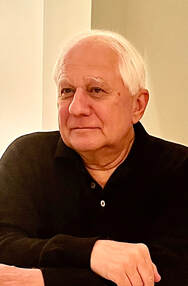 Tony Simonetta.
Tony Simonetta. Media Contact:
Graziella DiNuzzo
609-680-7670
gdinuzzo@wtcphila.org
Philadelphia, PA (January 30, 2023) The WTCGP Board has named Tony Simonetta interim President of the WTCGP while the WTCGP selection committee completes the process to identify and appoint a new permanent President. A new permanent president is expected to be announced by end of the second quarter of 2023.
“The WTCGP is an economic generator for Southeastern PA and South Jersey. I am pleased that Tony has accepted to step into an interim role as President. His experience will help keep our momentum going,” says Board Chairman Joe Scalio.
Tony Simonetta is principal of AJS & Associates, a consulting practice established to assist clients in improving results of operations and financial health and managing risk. Simonetta served as Senior Vice President of Operations for the Philadelphia Industrial Development Corporation (PIDC) and earlier as Special Assistant to the President and CEO of the Temple University Health System. Simonetta’s early career includes 28 years with KPMG LLP, with 18 years as a partner.
"I agree to accept the honor of this temporary position because of the value I place on the work of the World Trade Center of Greater Philadelphia,” says Tony Simonetta.
Linda Conlin has served as President of the WTCGP since 2009. Read Bio.
As of January 30th, Conlin will serve as a Senior Advisor for Strategic Initiatives for WTCGP, assisting with the new Selling to the World initiative designed to accelerate the global growth of small businesses and to expand the participation of minority and women-owned businesses in global trade.
About the World Trade Center of Greater Philadelphia
The World Trade Center of Greater Philadelphia (WTCGP) is a 501(c)(3) non-profit international trade services and membership organization, providing companies in Southeastern PA and Southern NJ with individual trade counseling, educational programs, market research, trade mission support, business networking events, and powerful connections to customers and partners worldwide. The WTCGP is also a member of the World Trade Centers Association (WTCA) which consists 320 members in 92 countries.
Since its inception, WTCGP has helped small and medium-sized companies generate over $2.3B in incremental export sales, supporting over 30,000 jobs in the region, and furthering its mission “to bring growth and prosperity to businesses, communities, and neighborhoods in Greater Philadelphia and worldwide.” wtcphila.org.
Sherrill Mosee’s mother was a young teenage mom with a desire to go to college. “She was accepted to the University of Penn but my grandmother said she couldn’t go. She said she couldn’t afford to keep the baby and go to school,” explains Mosee. The reality of her mother’s lost life opportunity would become the catalyst for Sherrill’s life journey.
When Sherrill was laid off from her engineering job at Lockheed Martin, she decided it was time to follow her desire to help women succeed by finding solutions to life obstacles.
In 1998, Sherrill formed Family Care Solutions, a nonprofit organization dedicated to promoting higher education among low-income women with children. More specifically, Sherrill’s organization awarded over $3 million in childcare scholarships to help women stay in school while earning a college degree. “We supported over 500 student parents and had a ninety percent graduation rate,” boasts Sherrill. “Today, these moms are accountants, teachers, business owners and more. I get invited to their children’s weddings and graduations.”
“Unfortunately, when the economy crashed in 2008, I lost a lot of government funding and had to close my doors to the nonprofit,” explains Sherrill. “However, I was committed to supporting those students who were already in the program until they all graduated. It was during my time working with the moms that I noticed them struggling with their book bag and diaper bag. I was also doing the same thing, commuting to work while carrying my purse, laptop, lunch bag, and shoes in a plastic grocery bag.”
“I originally started designing diaper bags because of my work with student moms and I wanted the name Pinky Blue but the domain was taken. I liked the sound of Pinky Blue so I literally went through the alphabet and landed on M for MinkeeBlue,” laughs Sherrill.
MinkeeBlue bags are designed to fit everything a woman will need to get through her busy life - from morning through night, and all in style.
Visit the MinkeeBlue website and you will see several videos of Sherrill demonstrating how easily everything fits into one stylish tote or backpack. You name it and it all fits neatly and accessibly - laptop, small purse, shoes, lunch bag, and a jacket, with seemingly room to spare. See Video.
“My engineering degree provided the training to guide my critical and analytical thinking. It also helped me to design the structural folding shelf in the middle of the bag to withstand the weight of objects without collapsing. I’ve been issued two patents for the functionality,” says Sherrill.
\MinkeeBlue was nurtured at the Philadelphia Fashion Incubator giving Sherrill access to Wharton business experts and fashion business luminaries.
Elissa Bloom is the Executive Director of the Philadelphia Fashion Incubator at Macy’s. “Every year we select designers who are interested in taking their product to the next level by offering a year-long designers-in-residence program. We connect designers with education, resources and business strategies to grow their brands. Sherrill had a very unique product – we are always looking for designers that have a unique value proposition.”
Over the course of a year, the Philadelphia Fashion Incubator helped facilitate the connections Sherrill needed to move to the next level. “We connected her to The Workshop at Macy’s in NYC, which teaches women and Minority Owned Businesses how to sell to retail,” explains Bloom. “Sherrill was also given office space at String Theory Charter School.”
“It’s so great working out of String Theory,” says Sherrill. I get to work with High School students, teaching them about entrepreneurship and sharing my experience as a business owner in exchange for the office space. The students apply for social media internship opportunities with MinkeeBlue. It’s a great opportunity to work with students again.”
Sherrill took advantage of every opportunity to grow, including entering the reality TV show, America’s Big Deal.
“I got an email about a new show created by Joy Mangano, the founder of the Miracle Mop. The show highlighted small business owners who had an opportunity to make a two-minute pitch. There were four contestants and whoever sold the most products during the show advanced to the next level. I won!” exclaims Sherrill.
Sherrill’s winnings amounted to a $100,000 purchase order from Macy’s. “I was on the premier show in October 2021 and won the first pitch competition. Things just lined up,” says Sherrill.
MinkeeBlue is now available for purchase in ten Macy’s stores and online. Sherrill was on hand at Macy’s Herald Square on December 2, 2022 to greet her new customers and answer questions.
MinkeeBlue has been featured on the Today Show, the Katie Couric Show and QVC. “She has the drive and perseverance to succeed in the fashion industry,” adds Bloom.
In August 2022, Sherrill received an email and a survey inviting her to participate in the World Trade Center of Greater Philadelphia’s signature event, “Bringing the World 2 PA.” Every year, the WTCGP arranges meetings with export ready Southeastern PA companies and Authorized Trade Representatives who work and live in various markets around the globe.
“Sherrill was great at following-up. I received her survey and she requested to meet with several representatives,” says Dale Foote, WTCGP Trade Specialist. “On September 12th, Sherrill spent the day in several meetings, and we now have work orders in process with Canada, Mexico, Australia, the UK, Czech Republic and India.”
“I first learned about the services offered by the WTCGP while attending a workshop offered by Small Business Development Center at Temple University,” says Sherrill. “While I sell direct to consumers online and have customers from all around the world, I am looking forward to securing a distributor in a global market.”
Sherrill admits that her road to entrepreneurial success hasn’t always been easy, “but nothing beats a failure but a try," her mother would always say.
After 13 years of dedicated service, Conlin will step down from her role later this year.
Media Contact:
Graziella DiNuzzo
609-680-7670
gdinuzzo@wtcphila.org
Linda Conlin to Transition as President of The World Trade Center of Greater Philadelphia
After 13 years of dedicated service, Conlin will step down from her role later this year.
Philadelphia, PA (July 28, 2022) – The World Trade Center of Greater Philadelphia (WTCGP) announced today that President Linda Conlin will transition out of the role she has held after 13 years of service. The WTCGP Board has appointed a Committee to conduct the search for a new president.
“I was fortunate to have the opportunity at the WTCGP to continue to work in a field that I know and enjoy with a supportive Board and talented team – all dedicated to helping our small businesses and communities grow through global trade,” says Conlin. “Despite the challenges that the global economy has faced these last few years, I am optimistic about the future and the ability of the WTCGP to bring the benefits of trade to more small businesses, including minority- and women-owned businesses, expanding the impact to more communities in the Greater Philadelphia region.”
During her tenure, the WTCGP became recognized as Greater Philadelphia’s preeminent nonprofit trade services provider, as well as a leading member of the World Trade Centers Association (WTCA), made up of more than 300 members worldwide, where Conlin served on a number of advisory committees and councils. Under her leadership, the WTCGP became one of the most effective economic development organizations and catalysts for economic growth and job creation in the region. Over the past thirteen years, Southeastern Pennsylvania and Southern New Jersey companies assisted by the WTCGP’s trade team recorded a total of $1.7B in increased export sales, supporting and generating thousands of family-sustaining jobs through global trade.
“As Chair, I have had the great honor of working closely with Linda and have seen firsthand the incredible impact she has made on our organization. I want to sincerely thank Linda for her tireless dedication to the WTCGP, and I look forward to her future support of the WTCGP and initiatives she championed,” says Gary Biehn, Partner, White & Williams and Chairman of the WTCGP Board. “I am confident that Linda will continue to make an impact in our communities and the international work that has been her passion.”
Having previously served as Assistant Secretary for Trade Development in the U.S. Department of Commerce and later as Vice Chair of the Export-Import Bank, Conlin brought to the region her knowledge of trade and trade policy, leveraging her prior experience to forge important partnerships with leading international trade agencies and departments, including the Export-Import Bank, the World Bank, and the U.S. Trade and Development Agency, to name a few. Through these partnerships, the WTCGP expanded access to trade finance and other services for local exporters.
Lauren Swartz, President & CEO, World Affairs Council of Philadelphia remarks, “Linda’s leadership has empowered a group of diverse, thriving businesses across our region to become stronger, more stable and grow thanks to expanding sales around the world. Her impact, as a sage mentor and ready partner, on those of us working to grow the local economy through trade will be long lasting. The World Trade Center of Greater Philadelphia remains a pillar of our region’s economic development strategy and Linda’s leadership will be missed!”
Over the past thirteen years, the WTCGP received over $3M in grant support from the U.S. Economic Development Administration, providing resources essential to the support of the region’s small business exporters. Under Conlin’s leadership, the WTCGP remained a leading Regional Export Network Partner with the Commonwealth of Pennsylvania, accounting for up to one-quarter of the state’s overall export results.
“Linda Conlin has been a leader and a driving force behind the World Trade Center of Greater Philadelphia for over 13 years,” John Curley, Vice President of Sales & Marketing for Sandmeyer Steel, recounts. “Her international experience and vision of trade have enabled many Pennsylvania companies to participate in global markets.”
To highlight the importance of trade as a tool for local economic growth and family-sustaining job creation, Conlin oversaw the production of events like the WTCGP’s Annual Global Business Conference (GBC) and World Trade Centers Day Awards Celebrations, bringing together the best of thought leadership in the industry to Philadelphia’s business community and recognizing companies for their global achievement.
“… Linda is truly a one-in-a-lifetime leader who could always be relied upon for her incredible knowledge on matters of international trade as well as for her impeccable organizational talent,” says Robin van Puyenbroeck, Executive Director - Business Development for the WTCA. “I am privileged to have had the opportunity to work with Linda and to receive her counsel on many matters, for which I am very grateful. While Linda will be dearly missed in the day-to-day I know she will never be far away from the WTCA – or from contributing to the promotion and facilitation of international trade.”
In its 20th anniversary year, Conlin has positioned the WTCGP well for the organization’s next decade and beyond, with the launch of its new, Selling to the World initiative, aimed at expanding exports for the region’s small- and medium-sized businesses with a focus on opening global opportunity to minority and women-owned enterprises.
The WTCGP board, staff, members and partners with whom Conlin has worked over the years are thankful for her dedicated leadership and commitment to its mission of “bringing growth and prosperity to businesses, communities and neighborhoods in Greater Philadelphia and worldwide through global trade and investment.”
Applications for the role of WTCGP President may be sent to info@wtcgp.org.
About the World Trade Center of Greater Philadelphia: The World Trade Center of Greater Philadelphia (WTCGP) is a nonprofit, membership-based organization that accelerates global business growth for companies in Southeastern Pennsylvania and Southern New Jersey. Since 2002, WTCGP has served as a catalyst for regional economic growth and job creation, helping area companies generate over $2.2B in incremental export sales in the region. WTCGP is a member of the World Trade Centers Association (WTCA). Visit wtcphila.org.
Categories
All
International Trade News
Local And Regional News Alerts
Member News
Press Releases
Success Stories
Wtcgp Events
Wtcgp In The News
Wtcgp Newsletters
Archives
July 2023
June 2023
March 2023
February 2023
January 2023
December 2022
July 2022
March 2022
November 2021
April 2021
March 2021
February 2021
January 2021
December 2020
November 2020
September 2020
August 2020
July 2020
June 2020
May 2020
April 2020
March 2020
February 2020
January 2020
December 2019
November 2019
October 2019
September 2019
July 2019
June 2019
May 2019
April 2019
February 2019
January 2019
December 2018
November 2018
October 2018
September 2018
August 2018
July 2018
June 2018
May 2018
April 2018
March 2018
February 2018
January 2018
December 2017
November 2017
October 2017
September 2017
August 2017
July 2017
June 2017
May 2017
April 2017
March 2017
February 2017
January 2017
December 2016
November 2016
October 2016
September 2016
August 2016
July 2016
June 2016
May 2016
April 2016
March 2016
February 2016
January 2016
December 2015
November 2015
October 2015
September 2015
August 2015
July 2015
June 2015
May 2015
April 2015
March 2015
February 2015
January 2015
December 2014
November 2014
September 2014
May 2014
March 2014


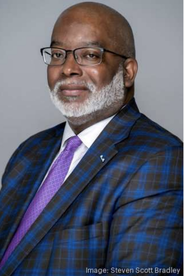
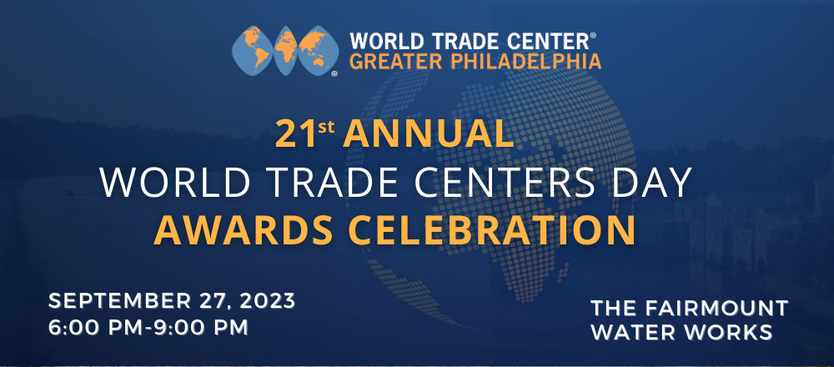

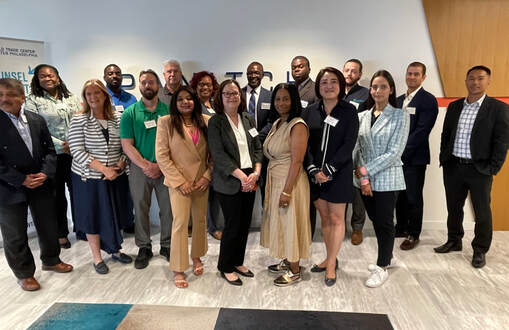
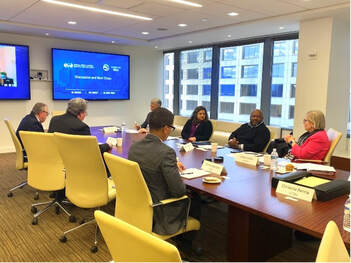
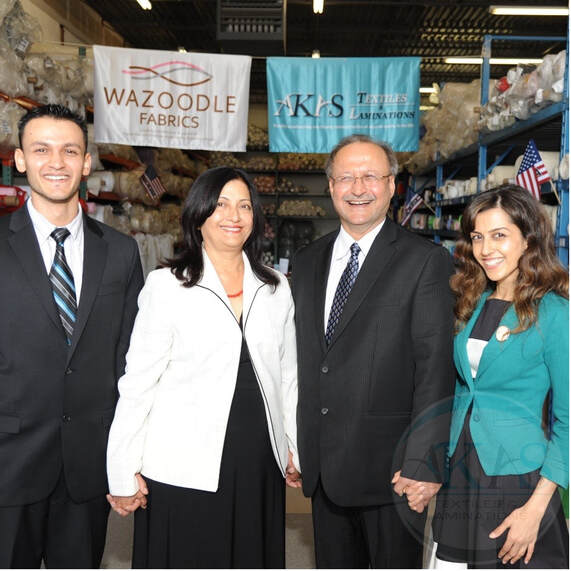
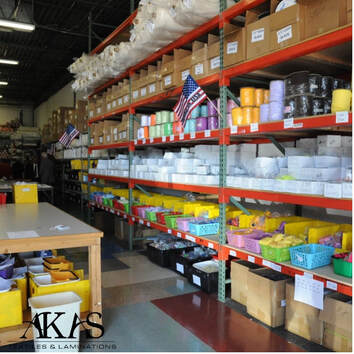




 RSS Feed
RSS Feed